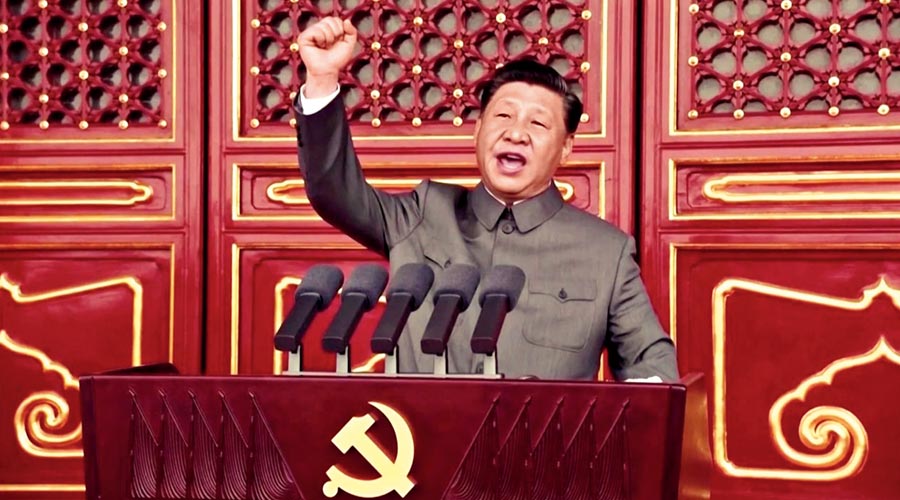China's ruling Communist Party has barred retired cadres from making negative political speeches ahead of its key Congress that will make a once-in-a-decade leadership reshuffle later this year and is expected to endorse an unprecedented third term for President Xi Jinping.
Xi, 68, is widely expected to get the endorsement for a rare third term at the CPC Congress, which is expected to be held in the next few months. Ahead of that, the General Office of the CPC Central Committee issued a set of regulations titled "Strengthening Party Building among Retired Cadres in the New Era", state-run news agency Xinhua reported.
The guidelines stressed that retired officials are valuable assets of the party and political guidance and the supervision of the officials' conduct should also be enhanced. The statement called on all party departments to ensure that retired cadres and party members listen to the party and follow the party and warned that violations of disciplinary rules should be dealt with seriously .
A spokesperson for the Central Organisation Department told Xinhua that the new rules are a response to some party members committing disciplinary offences after retirement.
The statement asks them not to discuss the general policies of the party's Central Committee in an open manner, not to spread political negative remarks, not to participate in the activities of illegal social organisations, and not to use their former authority or position influence to seek benefits for themselves and others, and resolutely oppose and resist all kinds of wrong thinking," Hong-Kong based South China Morning Post reported on Tuesday.
The Communist Party of China (CPC) is gearing up for the party Congress, a twice-a-decade event, that is expected to endorse an unprecedented third term for Xi, making him the first person to do so after the death of its founder leader Mao Zedong in 1976.
Xi has gained traction with the Chinese masses after he took over the leadership of the party in 2012 besides the Presidency and the head of the military with his massive anti-corruption campaign in which over a million officials were punished.
Critics say he also made a good use of it to consolidate his power in the party and the military, enhancing his stature as a core leader , the title bestowed on Mao who wielded power till his death.
The guidelines of party gagging the retired party officials amid growing criticism of Xi's rigid zero-COVID policy leading to lockdowns of several top cities, locking millions of people indoors to curb the virus has evoked public criticism denting his popularity.
"I think this strengthening is in preparation for the upcoming 20th national congress," a Guangdong-based retired official said, adding that the new rules have further tightened the party's control over retired cadres. The official said that in recent years, retired cadres who wish to live abroad are required to submit an application to resign from the party.
I think these various measures were implemented to prevent some retired cadres from saying things against China after leaving the country, like Cai Xia, he told the Post. Cai, a retired professor from the CPC's party school was expelled in 2020 for speeches that damaged the reputation of the country .
In 2020, Cai, who lives in the United States, called on the Chinese leadership to change a top leader to improve ties with the West a speech the party school described as of an extraordinarily execrable nature.
Meanwhile, in a rare revolt, students of the prestigious Peking University have resorted to protests over the university's efforts to build a wall confining them to dormitory areas as part of epidemic control measures.
The university has backed down on a plan to confine students to their dormitory area in Beijing's Haidian district as a measure against COVID-19, the Post reported. Sunday night's protest took place at the Wanliu compound, an off-campus dormitory for Peking University students and staff with its own canteen, supermarket and gym. It came after posts appeared on a student internet forum showing university staff erecting a wall of sheet metal separating the students from faculty staff.
The wall would have barred students from leaving the compound but allowed staff to move about freely.
Hundreds of students gathered at about 10 pm, shouting their objections and demanding that the authorities address their concerns.
One postgraduate student who was at the protest said the university had backed down on the plan. (The wall) was taken down after the students objected to it, said the student who declined to be identified for fear of retribution.
She said the decision not to go ahead with the wall was made after university leaders discussed it with student representatives on Sunday night.










